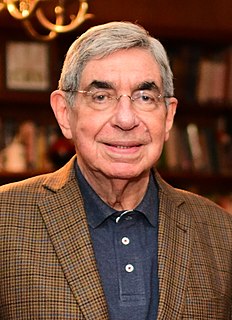A Quote by Jack Kornfield
Peace requires us to surrender our illusions of control.
Related Quotes
Peace requires us to surrender our illusions of control. We can love and care for others but we cannot possess our children, lovers, family, or friends. We can assist them, pray for them, and wish them well, yet in the end their happiness and suffering depend on their thoughts and actions, not on our wishes.
Faith is the surrender of the mind; it's the surrender of reason, it's the surrender of the only thing that makes us different from other mammals. It's our need to believe, and to surrender our skepticism and our reason, our yearning to discard that and put all our trust or faith in someone or something, that is the sinister thing to me. Of all the supposed virtues, faith must be the most overrated.
We need to surrender our attachments to government in every aspect of life. We need to give up our dependencies on the state, materially and spiritually. We should not look to the state to provide us financially or psychologically. Let us give up our longing for welfare, our love of war, and our desire to see the government control and shape our fellow citizens.
The capacity for people to kid themselves is huge. Living on illusions or delusions, and the re-establishing of these illusions or delusions requires a big effort to keep them from being seen through. But a very old idea is at work behind our current state of affairs: enantiodromia, or the Greek notion of things turning into their opposite.
Peace starts within each one of us. When we have inner peace, we can be at peace with those around us. When our community is in a state of peace, it can share peace with neighboring communities, and so on. When we feel love and kindness towards others, it not only makes others feel loved and cared for, but it helps us also to develop inner happiness and peace.
Peace should be a hallmark of the godly person, first because it is a Godlike trait: God is called the God of peace several times in the New Testament. He took the initiative to establish peace with rebellious men, and He is the author of both personal peace as well as peace among men. Peace should be part of our character also because God has promised us His peace, because He has commanded us to let peace rule in our lives and relationships, and because peace is a fruit of the Spirit and therefore an evidence of His working in our lives.
The practice of patience guards us against losing our presence of mind. It enables us to remain undisturbed, even when the situation is really difficult. It gives us a certain amount of inner peace, which allows us some self-control, so that we can choose to respond to situations in an appropriate and compassionate manner, rather than being driven by our disturbing emotions.




































